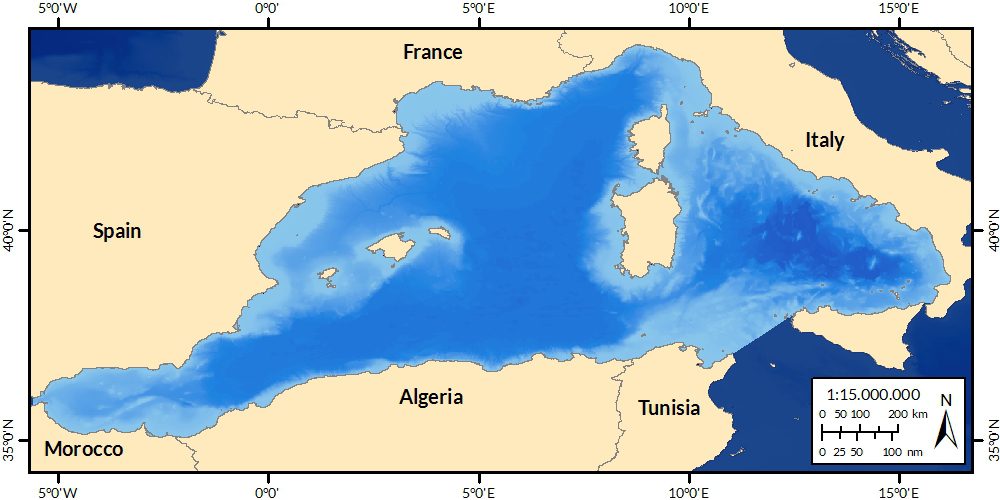Western Mediterranean
 |
|
Map of Western Mediterranean. Click to enlarge. |
Western Mediterranean Sea waters extend along the Northern Alboran Sea, the Gulf of Lion and the Tyrrhenian Sea, covering the Balearic archipelago and the islands of Corsica and Sardinia and concern France, Italy and Spain.
The European Commission published its new proposal for the first multi-annual management plan for demersal fish stocks in the Western Mediterranean Sea in 2018. In line with the principles of the CFP and under scientific recommendations, multiannual management plans (MAPs) have been recognised as the most suitable and efficient measure/tool to tackle the problem of overfishing. In case of the Mediterranean, the national management plans, currently in place, have not proven to be successful in reducing the alarming levels of depleted fish stocks.
The Commission’s proposal to recover key commercial species in the region, such as hake, mullet and shrimps, is also a direct follow-up to the MedFish4Ever Declaration from 2017.
However, in its current state, the proposal is not sufficient to achieve the Common Fisheries Policy’s objective of rebuilding all EU fish stocks to sustainable levels by 2020.
During the ongoing talks with the European Parliament and the Council of the EU, Oceana is advocated for the following, to adopt a plan that would bring a better management in the Mediterranean Sea and stop overfishing by 2020:
- Create a trawl-free zone for at least 100m depth for all year round, instead of only three months out of the year (1 May to 31 July), as proposed in the Commission’s communication. This would provide preferential access to low-impact small scale fisheries (the most important fleet in the region) as well as protect sensitive habitats (e.g. maërl and coralligenous beds) and essential areas for juvenile fish, fundamental for stocks recovery.
- Protect sensitive and essential fish habitats in deeper areas. Ensure that areas deeper than 150m, with scientific evidence of juveniles and/or spawning aggregations of demersal species and sensitive habitats (coral reefs, sponge beds), are closed to trawling.
- Set fishing opportunities according to scientific advice. Catch limits when set in line with scientific advice have shown a positive trend of stock recovery (e.g. North East Atlantic).
Not only is overfishing depleting our marine resources, but it is directly threatening fishermen, businesses and the livelihoods of coastal communities’ inhabiting the region. If no immediate action is taken in the short-term, fisheries in the Mediterranean could collapse, or could face emergency closures to avoid the worst-case scenario and its severe socio-economic consequences. Implementation of ambitious first Western Mediterranean MAP covering demersal fish stocks should therefore be a top priority for the EU on the path to saving Mare Nostrum.

